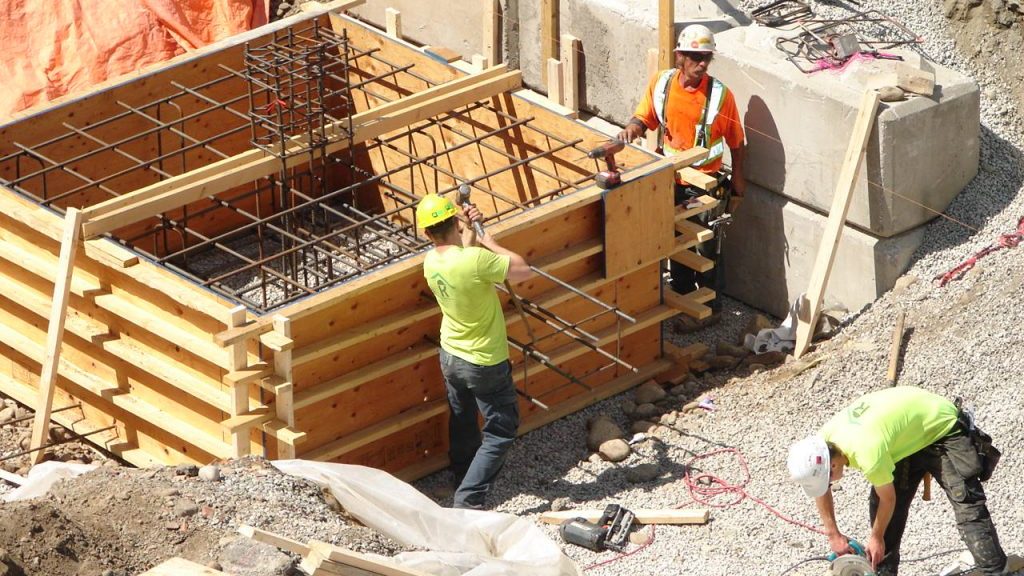A new poll states 70 per cent of British Columbians support community benefits agreements (CBAs), but not everyone in the industry agrees with its findings.
The poll, commissioned by the BC Building Trades and conducted by Vancouver-based Research Co., found seven out of 10 British Columbians supported the government’s new policy which states certain large public infrastructure projects must be built using union labour components. The idea behind the agreements, the government previously stated, was to bolder underrepresented groups such as women and Indigenous people as well as improve apprentice numbers along with the number of local area workers on projects.
The poll asked three questions, whether one ‚Äúsupported or opposed the community benefits policy of 25 per cent of the workforce being apprentices on publicly funded projects‚ÄĚ; if respondents ‚Äúsupported or opposed building projects such as bridges and roads with community benefits agreements‚ÄĚ; and how familiar one was with CBAs.
The poll found 68 per cent of British Columbians supported the policy of a 25 per cent apprenticeship ratio. The poll was conducted between Aug. 2 and 8 among 800 adults across B.C.
‚ÄúWe felt it was important to talk with British Columbians about the Community Benefits Agreement and get a real sense of their opinion on the policy. I think the results speak for themselves. The vast majority of people believe this is good public policy,‚ÄĚ said BC Building Trades secretary-treasurer Brian Zdrilic in a BC Building Trades release.
‚ÄúPeople across B.C. see the value in CBAs including strong support from northern British Columbians, who have seen past projects like Site C and HD Mining‚Äôs Murray River project crewed by foreign and out-of-province workers.‚ÄĚ
Others in the industry question the validity of the poll.¬† Independent Contractors and Businesses Association president Chris Gardner said, ‚Äúthe poll is meaningless, the questions are leading and that‚Äôs showing up in the results.‚ÄĚ
‚ÄúYou can pay for all the polls you want. If you ask questions that are leading or misleading, this is the poll you get,‚ÄĚ Gardner said.
‚ÄúIf you ask if people want the construction industry to hire local, people say ‚Äėyes‚Äô. But the reality is that‚Äôs what the industry already does.‚ÄĚ
What the survey doesn’t cover is that the CBAs set out prescriptive hiring practices that favour unions
‚ÄĒ Fiona Famulak
Vancouver Regional Construction Association
Progressive Contractors Association of ļŕŃŌ≥‘ĻŌÕÝ president Paul de Jong echoed Gardner‚Äôs concerns.
‚ÄúAll that‚Äôs stipulated in the CBA is that there‚Äôs a 25 per cent target for apprentices, but no requirement. Likewise, hiring Indigenous workers is listed as a priority but not a requirement,‚ÄĚ de Jong said.
Zdrillic said the open-shop sector’s record of apprenticeship support is lacking, particularly on large-scale infrastructure projects.
‚ÄúWhen I look at certain projects that have happened in B.C., their numbers aren‚Äôt holding up to numbers we‚Äôre at. With Site C in particular, the apprenticeship rates up there are atrocious,‚ÄĚ Zdrillic claimed.
De Jong also said the questions in the poll were leading and termed it a ‚Äúbait and switch.‚ÄĚ
‚ÄúIt dresses up CBAs to seem they are innocuous and of great importance to B.C. residents, but with the way they phrase the questions, they get the answers they‚Äôre looking for,‚ÄĚ he said.
‚ÄúWe all agree local communities should benefit, and our contractors are well aware of community benefits, but when they‚Äôre designed like this we have serious concerns.‚ÄĚ
British Columbia Construction Association (BCCA) president Chris Atchison said he questioned the methodology behind the polling.
‚ÄúLikely less than 25 per cent of respondents likely understand the nature of CBAs, and 800 people over three days is not necessarily reflective of the population,‚ÄĚ Atchison said.
Under the poll question asking how familiar B.C. residents were with CBAs, a majority responded in the ‚Äúnot too familiar‚ÄĚ and ‚Äúnot at all familiar‚ÄĚ categories.
‚ÄúCBAs are a new concept in B.C. and not everyone is attached to the idea or understands it,‚ÄĚ Zdrillic said. ‚ÄúBut when you look at other jurisdictions like Los Angeles where they used CBAs, as work began picking up support for them grew.‚ÄĚ
In 2001 the City of Los Angeles implemented a CBA to build a sports and entertainment district in its downtown core. It was one of the first agreements of its kind in the United States.
Vancouver Regional Construction Association (VRCA) president Fiona Famulak said her organization is taking the survey results with a grain of salt because ‚Äúwe believe the results only reflect part of the conversation.‚ÄĚ
‚ÄúWhat the survey doesn‚Äôt cover is that the CBAs set out prescriptive hiring practices that favour unions, don‚Äôt set out that individuals need to join the union after 30 days. It doesn‚Äôt set out that they have to work under a crown corporation,‚ÄĚ Famulak said.
Atchison said the BCCA launched a letter writing campaign on Aug. 9 against CBAs and had already gathered 200 signatures.
‚ÄúThe emails are sitting in Premier John Horgan‚Äôs inbox right now, CCed to the MPs and MLAs of all the signatories,‚ÄĚ he said.
The BCCA has also invited B.C. Minister of Transportation and Infrastructure Claire Trevena and Minister of Labour Harry Bains to a series of roundtables it intends to hold in September in different areas of the province where the ministers can ‚Äúpresent directly to industry, hear feedback and respond to questions.‚ÄĚ
‚ÄúWe look forward to the opportunity for more robust discussion,‚ÄĚ Atchison added.
When asked for comment, the B.C. Ministry of Transportation stated: “We were pleased to see the results of the Research Co. survey Рcommissioned by the BC Building Trades Council. This survey relayed that a majority of British Columbians support the Community Benefits Agreement (CBA), also known as a labour agreement.
‚ÄúThe CBA promotes the delivery of projects on time and on budget while providing long lasting benefits to B.C. The alignment of wages to ensure good paying jobs may result in a cost increase, though it will provide cost certainty and predictability as wages are known. In addition, the no-strike/no-lockout clause means no disruption, no delays and no added costs,‚ÄĚ the ministry added.











From my own experience, and what I have seen, I do not agree with bringing in TFWs, particularly from certain countries. They, in general have cost jobs for the locals, and what is even worse, is the general poor quality of training, really shows up. The government spent a lot of (taxpayers) money to bring them over. They got to stay in first class hotels, private buses, money spent on clothing, and the list goes on. The people that I saw, couldn’t speak English, and had no or very little knowledge of the trade they were alleged to be in. Further more they seemed to be very short of motivation.
Forcing the CBA down the throats of taxpaying citizens, is against the Charter of Rights and Freedoms, another example of an NDP payoff for unions, following the same road as Glen Clarke took the citizens of BC on a doomsday ride.